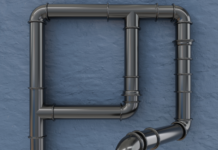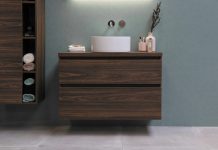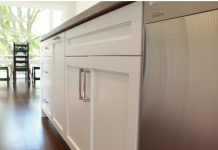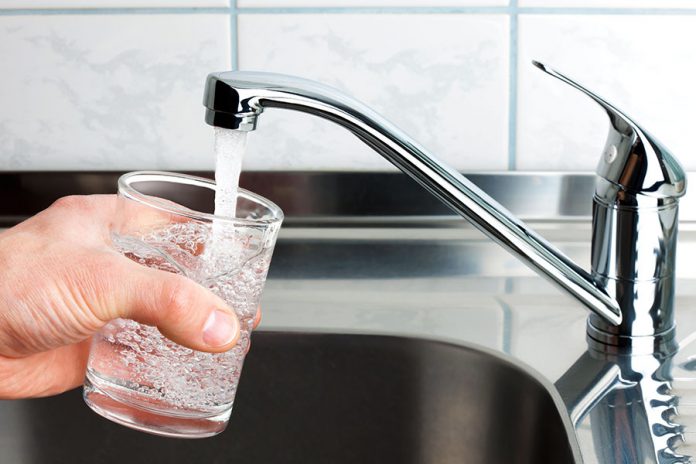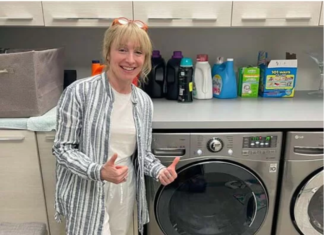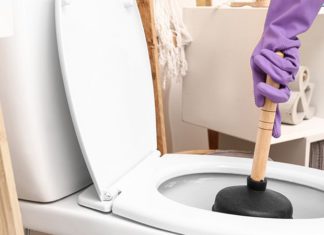Water softening systems help you fight hard water. And they’re usually salt-based systems that use sodium ion-exchange to eliminate unwanted excess minerals in the water. However, there’s another choice: salt-free water softeners.
In this article, we’ll talk about salt-free water softeners and how they work. More importantly, well talk about their pros and cons. Here’s a quick overview:
- What are salt-free water softeners?
- Pros
- Low Maintenance
- Eco-Friendly
- Low Consumption
- Various Applications
- Alternative to Soft Water
- Cons
- Ineffective Against Well Water
- No Soft Water Benefits
- When to Choose Salt-Free Water Softeners?
Let’s dive right in.
What are salt-free water softeners?
Salt-free water softeners use a process called Template Assisted Crystallization (TAC). This process converts the minerals in hard water into harder materials that do not stick to any surfaces of your home.
They do not actually “soften” water. Rather, they condition or neutralize the water. As a result, they’re often called water conditioners instead of softeners.
Salt-free water softeners are not as popular as traditional, salt-based water softeners. However, they are becoming more in demand as more people become aware of the problems related to traditional softeners. To get a better sense of what they are, check out Filtersmart.
So, what are the pros and cons of salt-free water softeners?
Pros
Salt-free water softening systems have many advantages. Here are some of them.
Low Maintenance
Salt-free water softeners require low maintenance and minimal upkeep. The installation process is very simple and straightforward. Salt-free softening systems usually have either a single tank or cartridge.
And because salt-free systems neither backwash nor go through regeneration processes, they don’t use drain connections. You don’t need storage tanks for regenerating brine or control valves to monitor flow and initiate backwashing.
What’s more, salt-free systems don’t need potassium or salt. You rarely ever have to call the plumber, and the system won’t have any drastic effect on your water flow.
Lastly, unlike salt-based or ion-exchange water softeners, salt-free systems don’t require electricity to work, so you can save money from electricity bills.
Eco-Friendly
As we’ve mentioned, salt-free systems don’t go through regeneration cycles. As a result, they don’t produce any wastewater.
They also don’t dump chemicals into the waste stream. Chemicals like chlorides can be detrimental to municipal water treatment plants.
Additionally, salt-free systems help you save water since the water they process goes straight into your home or tankless heater.
Low Consumption
As mentioned, salt-free systems use TAC processes to condition water. You only need to replace the TAC media used in the system every three to five years.
At the same time, you only need a small amount of media — 5 to 10 liters of media — to sustain the softening system for the whole house. You don’t need to fill the salt-free tanks with the media.
Various Applications
If you don’t plan to install a whole-house system, you can opt for scale inhibitors that come in different sizes and flow rates.
For example, you can install a single-cartridge, salt-free water softener in front of your tank heater or beside your other water filtration systems.
On the flip side, if you want a whole house system that comes with extensive filtration abilities, you can opt for a whole-house salt-free water softening system.
Both of these systems help prevent scale accumulation in your home and improve the taste, odor, and quality of your water supply. The TAC media will also have a longer lifespan as the chlorine and chloramines are removed.
Alternative to Soft Water
Not everybody likes soft water. Some people don’t like the slippery feel of soft water. Some people feel like there’s leftover soap clinging to their skin when they wash with soft water. Others complain about the water not fully rinsing shampoo from their hair.
This is subjective, but if you feel the same way about soft water but still want to remove hard water from your plumbing and water supply, then salt-free water softeners are a great alternative for you.
Cons
Salt-free water softening systems also have some negative sides. Here are some of them.
Ineffective on Well Water
Hard water is most common in well waters. And, unfortunately, salt-free water softeners just don’t do the job when it comes to well water.
Well waters have moderate to high levels of iron and manganese, and water conditioners do nothing to prevent them from scaling. The iron “wraps” around the TAC media and prevents the crystallization from happening.
Meanwhile, hard water with high levels of magnesium and calcium ions are practically resistant to the TAC media. They simply bounce off and flow into the plumbing, creating scale formations.
In other words, salt-free water softeners have very low efficacy against very hard water.
No Soft Water Benefit
As discussed above, salt-free water softening systems don’t soften water. As a result, you also don’t get most of the benefits of soft water.
For instance, soft water makes cleaning up easier since there are fewer to no impurities in the water. With conditioned water, you’ll still use double the detergent, soap, and dishwasher to clean well.
You will still have soap scum and stains on your sinks, bathroom, kitchen, and appliances when you use water treated by salt-free softeners.
When to Choose Salt-Free Water Softeners
Given these benefits and downsides of salt-free water softening systems, it might be tricky to know when to choose salt-free softeners. However, it’s wise to choose them if:
- You want to monitor your sodium intake: salt-free systems are safe if you have cardiovascular problems as well as other conditions that prevent you from consuming too much salt.
- You have limited space: salt-free systems are compact and come in small sizes. You can install them in almost any place you want.
- You want to avoid chemicals: salt-free systems are also free of potentially harmful chemicals.
- You hate regular maintenance: as discussed above, salt-free systems require low maintenance, unlike salt-based systems that require regular upkeep.
Salt-free water softeners are a brilliant alternative to traditional water softeners. If you need an easy solution that requires low maintenance and saves you money, salt-free systems are a great choice.


